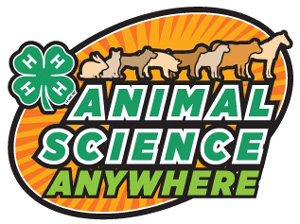All About "ANIMAL SCIENCE'
What is Animal Science
Animal science is the study of animals that live alongside humans. Around the world, humans rely on animals for food, fiber, labor and companionship. Animal scientists help us understand and manage these animals.
What do animal scientists do?
- Animal scientists work with farm animals, wildlife, laboratory animals, pets and zoo animals. They study these animals to help keep them healthy and productive.
- Animal scientists help put food on our tables. Animal scientists work with farmers to improve animal breeding, growth and nutrition. When animals grow well and stay healthy, farmers can produce more meat, milk or eggs for our consumption. Animal scientists also work with farmers to decrease the environmental impact of animal agriculture.
- Animal scientists study animal products after harvest. They check meat quality or screen milk for pathogens. Advances in food safety increase the world’s supply of nutritious food.
- Animal scientists also keep us clothed. In cold climates, people rely on wool to stay warm. Animal scientists work to keep animals like sheep and alpacas healthy.
- Animal scientists study animals to ensure safe and effective use for labor and recreation.
- Animal scientists protect human health. It is important for scientists to study how diseases spread between humans and animals. Animal scientists can also use animals as models for humans. Studying fetal development in sheep, for example, can help us understand fetal development in humans.
- Animal scientists also keep our pets healthy. They tackle issues like pet obesity and breeding. And zoos rely on animal scientists to establish breeding programs, nutrition programs and help preserve exotic wildlife.
The fields of animal science
1. Nutrition
Nutritionists want to know how to keep animals healthy by giving them the right food. This field can be challenging because not all animal foods are available around the world.
2. Physiology
How do animal bodies work? Physiologists study the organs, bones and muscles of animals. By studying animal bodies, scientists can keep pets, livestock and farm animals healthy and productive.
3. Reproductive Physiology
Some animal scientists study how animal reproduction works. They want to know about the hormones and anatomy that leads to the next generation of animals.
4. Animal Behavior
Ever seen a cat “meow?” That’s an example of animal behavior. Animal scientists studying animal behavior want to know more about why animals act the way they do. This field is also called “ethology.”
5. Genetics and Breeding
Humans have been breeding animals for thousands of years. Scientists study aspects like DNA, genetic modification and cloning.
6. Animal Products
Many people rely on animals for food. Animal scientists work to make sure meat, milk and eggs are nutritious and safe for consumption. Some study how to raise the most productive animals, and some study how to keep products safe on the way to the grocery store.
7. Education
Where will the next generation of animal scientist come from? Some animal scientists become educators. They teach students about the science behind animal production.
Why is animal science important?
- Humans rely on animals for food, fiber, labor and companionship. So it makes sense that we need animal scientists to keep these animals healthy and productive.
- Animal scientists help put food on our tables. Animal scientists work with farmers to improve animal breeding, diseases and nutrition. When animals grow well and stay healthy, farmers can produce more meat, milk or eggs for our consumption. Animal scientists also work with farmers to decrease the environmental impact of animal agriculture.
- Some animal scientists study animal products after harvest. They check meat quality or screen milk for pathogens. Advances in food safety keep humans healthy and increase the world’s supply of nutritious food.
- Animal scientists also keep us clothed. In cold climates, people rely on wool to stay warm. Animal scientists work to keep animals like sheep and alpacas healthy.
- In many parts of the world, people need animals for labor. Animal scientists work to learn more about oxen and other draft animals.
- Animal scientists can protect human health. It is important for scientists to study how diseases spread between humans and animals. Scientists can also use animals as models for humans. Studying fetal development in sheep, for example, can help us understand fetal development in humans.
- Animal scientists also keep our pets healthy. They tackle issues like pet obesity and breeding. And zoos rely on animal scientists to establish breeding programs, nutrition programs and help preserve exotic wildlife.
